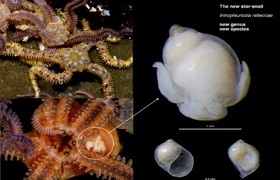Book sketches plan to save Africa's environment
12 August 2002The report was released at a meeting of African environmental ministers in Kampala, Uganda, in early July. Fuggle, based in the Department of Environmental and Geographical Sciences (EGS), and four other contributors from Africa were invited to the launch, where they addressed the ministers.
In his talk, Fuggle drew specific attention to four points. The first of these was that the AEO Report "explicitly recognises the need for concrete action to be taken by African nations to stop the deterioration of the continent's environment".
Secondly, he pointed out that the remedial actions proposed in the report had been devised "by Africans for Africans". "The proposed actions have not been externally imposed by non-African scientists or agencies," he emphasised.
In his third point, Fuggle noted that the proposed actions are things that African countries can do themselves. "To undertake these actions it might be helpful if we were to receive support from other continents, but such support is not essential, as the actions that are set out in the AEO Report can be done with the resources - financial, human and technological - that already exist on our continent," he said.
"The AEO Report is thus fully in accord with the spirit of the New Partnership for African Development (NEPAD)."
Finally, implementing the recommendations contained in the AEO Report will reduce African dependence on donor countries' largesse, and as well as on development agendas that are being driven from outside Africa, Fuggle noted in his last point. In short, he concluded, "the Report provides Africa with practical, implementable, African solutions to many of the problems preventing the development of the continent's human potential".
He stressed that the report deserves to be taken seriously by African environmental ministers and by African governments, and that its recommendations should be implemented by every country on the continent.
The AEO Report consists of a main report of 410 pages, and is supplemented by a 21-page synthesis and a 20-page summary of recommendations for action. A hard copy of the report is available in the EGS library on Upper Campus, and can also be found online at www.unep.org/aeo.
Another UCT contributor to the publication was Charl de Villiers, who graduated with an MPhil in environmental science from the University last year. De Villiers co-authored chapter three of the Report.
In addition to his work on the report, Fuggle also made an appearance in Global Environmental Outlook 3, another publication released just in time for the World Summit on Sustainable Development (WSSD).
This report featured his case study on Lake Victoria, specifically on human vulnerability to environmental changes in the area.
 This work is licensed under a Creative Commons Attribution-NoDerivatives 4.0 International License.
This work is licensed under a Creative Commons Attribution-NoDerivatives 4.0 International License.
Please view the republishing articles page for more information.










